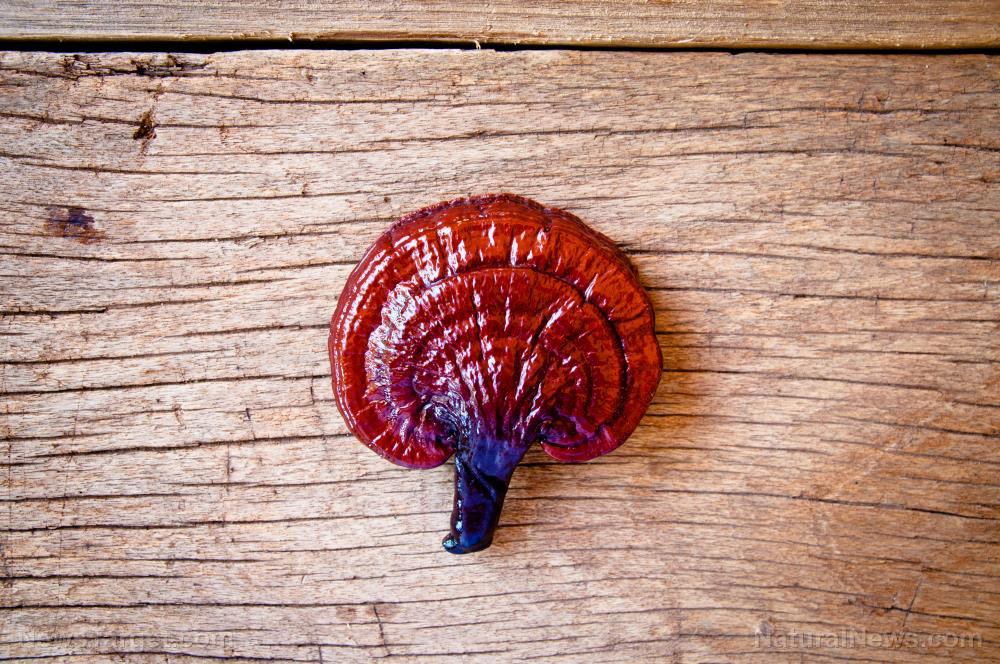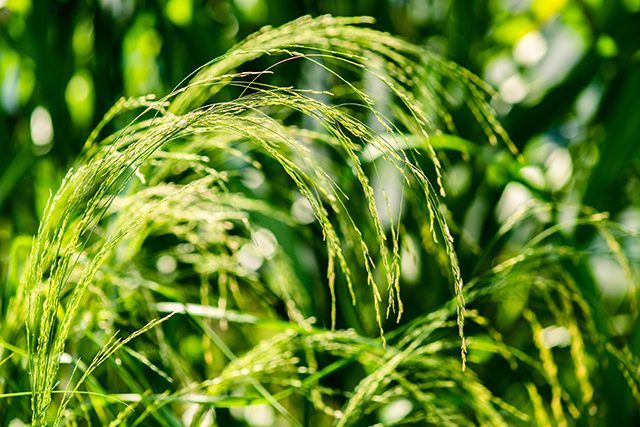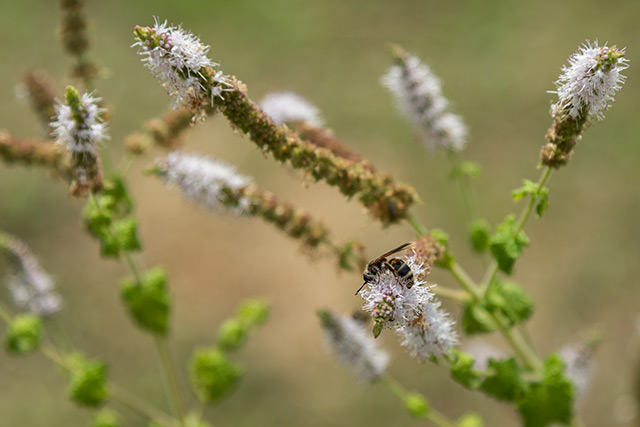 Parler
Parler Gab
Gab
Reishi is remarkable for its diversity of genes coding for cytochrome P450 enzymes. These enzymes not only afford this species a broad arsenal for producing secondary metabolites for digesting nutrients, but may also confer benefits to human health such as enhancing the degradation of toxins and free radicals and increasing the liver's metabolic efficiency. The variety of these enzymes, among more than 400 active constituents that have been found, indicates to me that mushrooms such as Reishi are like miniature pharmaceutical factories that can produce hundreds of medicinally-interactive compounds."Terpenes--Nature's Internal Solvent Out of the functional compounds found thus far in Lingzhi, the largest group is terpenes, of which triterpenes are a derivative. You know that aroma from pine trees? From clove? Or anise, oregano, menthol, cinnamon, and citrus? That largely comes from terpenes (more commonly referred to as essential oils). Terpenes are considered the strongest anti-inflammatory and anti-tumor compounds found in nature. Numerous triterpenoids have been shown to possess rapid acetylcholine action, our brain's main neurotransmitter. Oral administration of Lingzhi show triterpenes appearing in blood plasma in high quantities in under 20 minutes from ingestion. Aside from this speed and breadth of effect, the more fascinating property of all terpenes is their ability to dissolve, dissipate, and decompose cellular matter. One of the first terpenes ever extracted (12th century, by Arnaud de Villanosa) from nature was turpentine--yes, the paint thinner, which is natural. For those looking for an ultra-low cost solution to part of what Lingzhi mushrooms can do know that turpentine has what we would expect from terpenes. Turpentine and petroleum distillates similar to kerosene have been used medicinally since ancient times and are still being used as folk remedies up to the present. They were used in ancient Babylon to treat stomach problems, inflammations and ulcers. Dimethyl sulfoxide (DMSO), an organic sulfur compound that was used only as an industrial solvent, is also known for its positive health effects. (Look soon for an essay on the importance and use of biological solvents in medicine.) It is also important to know that marijuana is loaded with terpenes and that is one of the reasons it makes such a good natural chemotherapy agent. The Adaptogen Concept Regular consumption of Lingzhi mushrooms can enhance our body's immune system and improve blood circulation, thus improving better health conditions. Generally, Lingzhi is recommended as an adaptogen, immune modulator, and a general tonic. These mushrooms are also used to help treat anxiety, high blood pressure, hepatitis, bronchitis, insomnia, and asthma. In some ways, similar to medical marijuana (which has regulatory effects of the nervous system) adaptogens are substances that work by adjusting altered body conditions back to normal, resulting in stabilization of cellular and psychological homeostasis. The traditional herbal texts, as well as these recent scientific studies, report that Lingzhi works both for insomnia and increasing mental clarity--two seemingly opposing problems. It's also been found to work for both for high and low blood pressure symptoms; both over-active and under-active thyroids; both overactive immunity (Lupus, Fibromyalgia and other autoimmune diseases), and weak immunity (colds, flu, and viruses). To a western approach, these health issues are seen as polar opposites, and medically treated as such. To any natural healing model, such as acupuncture, these are seen more as conditions of deficiency or excess. This is where the adaptogenic concept applied to certain herbs and plants works well, because their main end effect is homeostasis and balance. Lingzhi fits the classic definition of an adaptogen. It has double-direction activity, meaning that it, as an example, improves functioning of the immune and organ systems, whether they are deficient or excessive. It doesn't stimulate the liver, the kidney, the overall system. Rather, it regulates them. It doesn't stimulate or suppress the immune system--it's called an immuno-modulator. Lingzhi's wide ability to repair the function of one person's liver, while increasing the function of another's lungs, or kidneys, or skin, or mental function, seems less odd once we view it from the adaptogen angle. Table - Pharmacological effects of Lingzhi Mushrooms
- Analgesic
- Anti-allergic activity
- Bronchitis-preventative effect, inducing regeneration of bronchial epithelium
- Anti-inflammatory
- Antibacterial, against Staphylococci, Streptococci, and Bacillus pneumoniae (perhaps due to increased immune system activity)
- Antioxidant, by eliminating hydroxyl free radicals
- Antitumor activity
- Antiviral effect, by inducing interferon production
- Lowers blood pressure
- Enhances bone marrow nucleated cell proliferation
- Cardiotonic action, lowering serum cholesterol levels with no effect on triglycerides, enhancing myocardial metabolism of hypoxic animals, and improving coronary artery hemodynamics
- Central depressant and peripheral anticholinergic actions on the autonomic nervous sytem reduce the effects of caffeine and relax muscles
- Enhanced natural killer cell (NK) activity in vitro in mice
- Expectorant and antitussive properties demonstrated in mice studies
- General immunopotentiation
- Anti-HIV activity in vitro and in vivo
- Improved adrenocortical function
- Increased production of Interleukin-1 by murine peritoneal macrophages in vitro
- Increased production of Interleukin-2 by murine splenocytes in vitro
- Beta and hetero-Beta-glucans (antitumour, immunostimulating )
- Ling Zhi-8 protein (anti-allergenic, immuno-modulating)
- Ganodermic acids – triterpenes (anti-allergenic agents, cholesterol and blood pressure reducing
Teff: An ancient super grain packed with nutrition and versatility
By Laura Harris // Share
Radishes are surprisingly good for you
By News Editors // Share
Why black cohosh works better than Prozac for menopause – without the side effects
By News Editors // Share
David Hogg’s anti-gun group misfires and collapses…
By News Editors // Share
Digital marketing’s stealthy assault on childhood nutrition fuels global obesity crisis
By Willow Tohi // Share
Governments continue to obscure COVID-19 vaccine data amid rising concerns over excess deaths
By patricklewis // Share
Tech giant Microsoft backs EXTINCTION with its support of carbon capture programs
By ramontomeydw // Share
Germany to resume arms exports to Israel despite repeated ceasefire violations
By isabelle // Share










